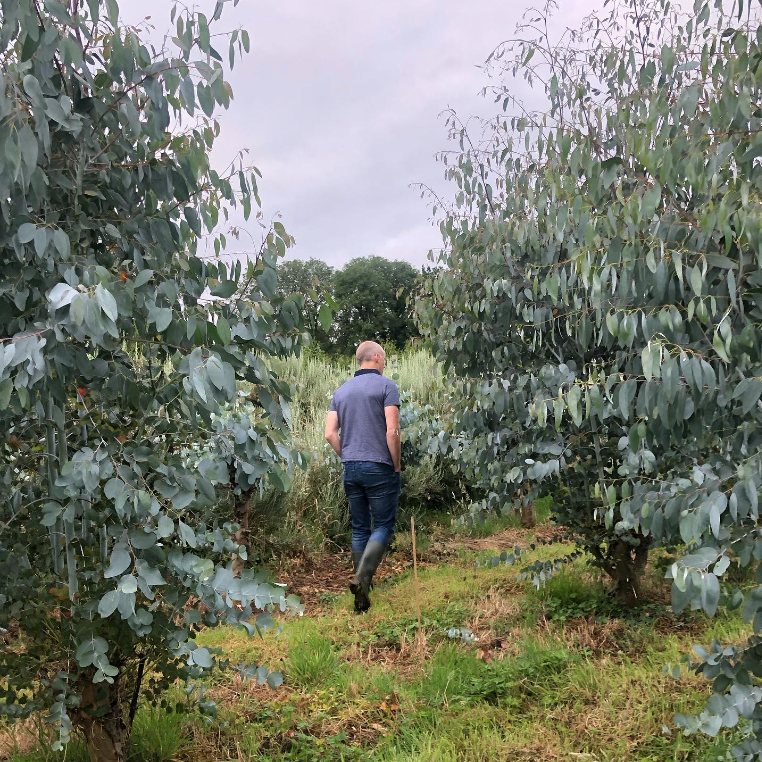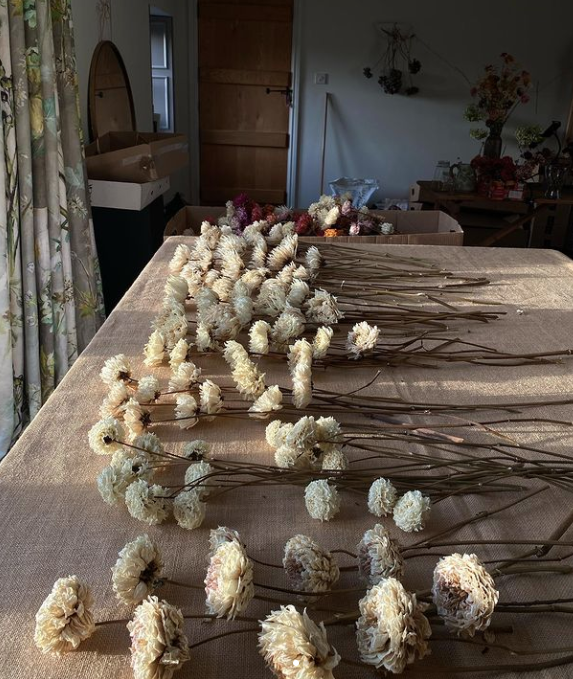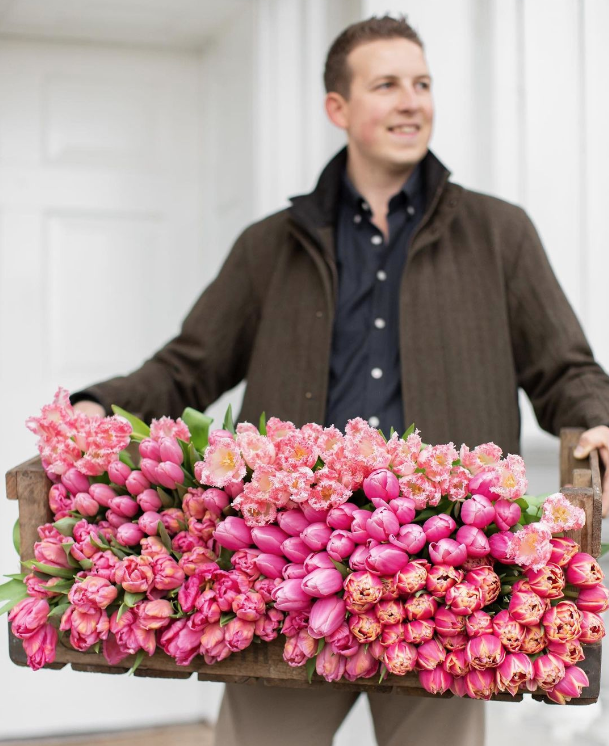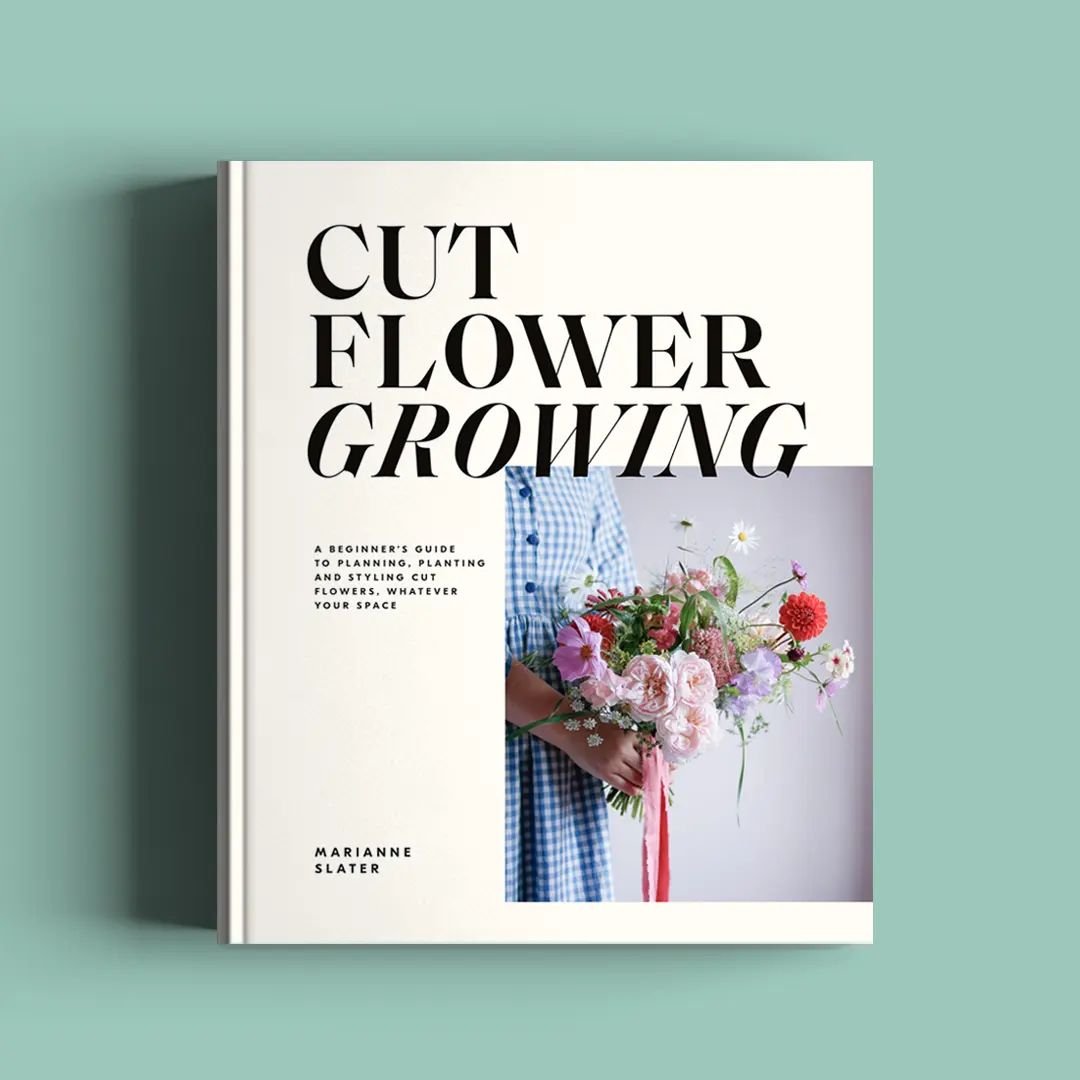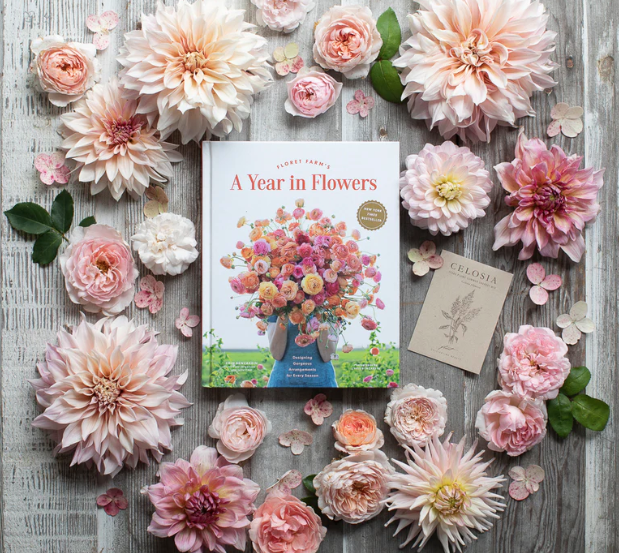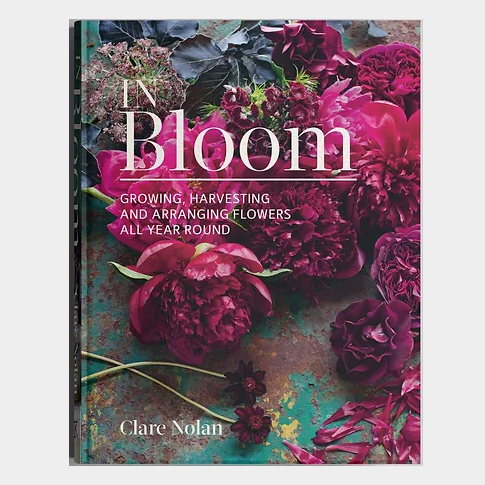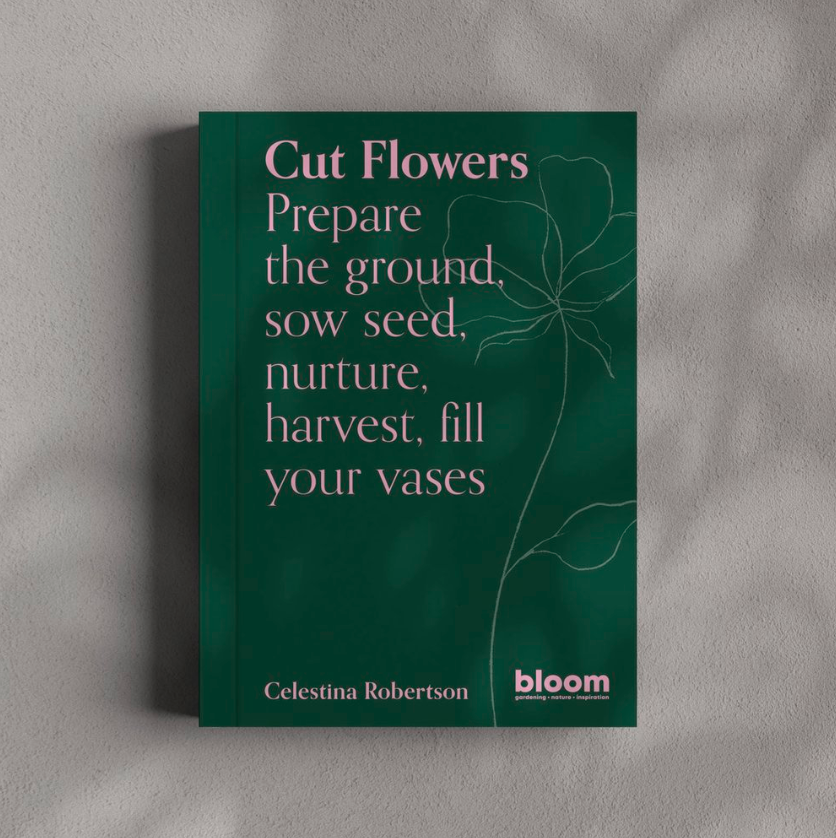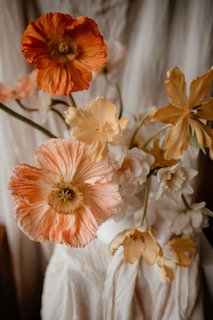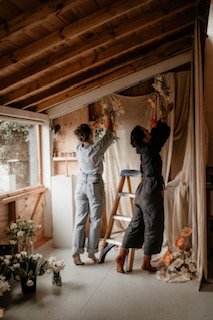Sustainability - Part Three
Sustainable Floristry
Part three - Learning
So we’ve spent the last two blog posts discussing some of the facts and figures, reasons and motivations behind why you might want to steer your floral business in a more sustainable direction. We’ve covered what produce might be more eco friendly and we’ve delved a little into some of the mechanics that are changing within the industry. We think our blog posts are a really great starting point for anyone looking to make steps towards sustainability, but what if you want to go further? How can you learn more about both produce, mechanics and how to actually bring them into your business?
We’ve done a round up of the ways in which we think you could bring this learning into your business, from investing in courses to your own guided development - we’ve got loads of suggestions on how you can start, whatever your budget and timescale - because every little change adds up!
Firstly, lets look at how you can work with British flowers - they can be different to use and don’t always behave like their imported counterparts and quite often there are completely different varieties available. How can you get them, work with them and even grow them if you want to?
Growers
Finding your local growers is a fantastic place to start when thinking about using more British flowers, reaching out to them and seeing if you can arrange a meeting and see what’s available it could be the start of a fantastic relationship. Lots of growers do mixed buckets as well as price pers stem - you’ll need to find out how each individual grower works, but if you can get a bucket of stems to practise with you’ll be able to grow your confidence in working with British blooms and support your local grower.
To find your local grower simply go onto the Flowers From the Farm website and search in the ‘Find Flowers’ section to find what you’re looking for.
Wholesale
As the prevalence of British flower farmers grows, more large scale producers are tackling the wholesale market. There’s no harm in asking your current wholesaler if they can get British grown elements of your order - they might surprise you. It’s also worth noting that on lots of the web shops of the big Dutch suppliers, there are now ‘British Grown’ pages popping up, make sure you look out for these too.
Some of the bigger suppliers of British flowers, who do also deliver nationwide are:
Grow your own
This can seem daunting, but there’s a lot of joy to be had in growing your own flowers and if it’s something you’re interested in then there are so many resources, classes and courses available to try, whatever level you’re wanting to work towards.
If you do feel the urge then get planning a space in your garden or allotment for sowing some seeds. Make sure, if you have little space, that you focus on hardy annuals - buying seeds and getting going round about now (spring) is a great time to see some of the fruits of your labour by summer time.
It might also be worth having a look in your garden to see if there is anything that could be cut and used already - just make sure you strive to educate yourself on what’s out when and what can work for cutting - the book The British Flowers Book by Claire Brown is a fantastic resource for this. You can also use Plant ID apps like PlantNet to identify certain items - although these apps won’t tell you if they’re good for cutting or not, so you would need to conduct further research. Can’t find it anywhere? Cut a bit, stick it in some water and see what it’s like after a few hours - that will give you a good indication of how it works when cut.
Learning
Booking a course or 1:1 with a florist who works mainly with British flowers is a fantastic way to build your skill set. Make sure to find someone whose work you love and feel inspired by and as much as there are lots of ready made courses out there, sometimes it's great to actually go to the person who inspires you most and just ask them about a 1:1, tailored to your needs. Most established growers and farmer florists offer this sort of service, it definitely doesn’t hurt to ask!
If you do want to try growing yourself and want a little more help than books and blogs, booking onto a growers course could be a great idea. Lots of these do tend to focus on larger scale farming, so make sure you really consider how much time, space and money you have to work with. Starting a flower farm is a big undertaking, but even a small growing patch to add extra British stems to imports is a great place to start.
Some of the best courses in the country are run by:
Cel Robertson - Forever Green Flower Co
Rachel Siegfried - Green and Gorgeous
Wolves Lane Flower Company
Reading
We’ve mentioned a few previously and we’ve definitely added our favourites into the other blog posts, but there are also so many books on how to grow and work with cut flowers. These are such an easy, accessible, entry level place to start learning. These are some of the best out there:
Grow Your Own Wedding Flowers - Georgie Newbury
The Cutting Garden - Sarah Raven
How to Grow the Flowers - Camila Romain & Marianne Mogendorff
Cut Flower Growing - Marianne Slater
Floret Farms Cut Flower Garden - Erin Benzakein & Julie Chai
Floret Farm's A Year in Flowers - Erin Benzakein & Julie Chai
The British Flowers Book - Claire Brown
Now let's look at mechanics. If you haven’t already then definitely have a read of our blog post from last week. The following advice is our best round up of what you can do to up your sustainability game within your work.
Professional Development
One of the easiest ways to try out new ideas and mechanics is to simply set aside some time for professional development (creative play-time) and challenge yourself to create something you would normally use foam for without any. This can be really fun and an inventive way to take ownership of the changes you want to make. Feeling confident usually comes best from doing and seeing proof of the outcome. If it feels important to you then it’s worth investing some time into it.
Freelancing
Going for jobs with a florist who you know uses sustainable methods, British flowers or both can be a great way to gain experience of working on a larger scale or in an environment where ideas have been tried and tested first. Make sure you do feel confident to still work at your normal pace and be honest about working in this way if asked. This is a great way to learn new skills but you don’t want to hold up the team by not being sure what you’re doing.
Whilst on the job
With our first point still ringing in our ears, we definitely appreciate that professional development time can be hard to carve out, so, within reason, could you try using a few more sustainable methods for your next job? We’re not saying chuck out all your plans and start from scratch, but could you challenge yourself to make one element of your display foam free for instance? Or make next week's delivery bouquets without the use of cellophane? You could order some of the newer, biodegradable products to try out - just making a small change and building from there would be a great start.
Invest in learning
Investing in learning when it comes to sustainable floristry methods can really benefit you in many ways. As well as being a great way to learn pretty much everything you’ll need to know in one go, they can also act as brilliant networking springboards. You are usually learning in a small group at least and that support from fellow students as well as tutors can be invaluable during the course and for months and years to come. Getting to know your peers and learning to work the same way together can be a great stepping stone to freelance opportunities on both sides, knowledge sharing further down the line and general industry friendship, something we all need to survive!
We mentioned our favourite courses in our Mechanics and Packaging blog but here are the quick links to those we highlighted:
Tallulah Rose:
https://tallulahroseflowers.com/floristry-courses-3/
Bath Flower School Sustainable Floristry Foundation: https://www.thebathflowerschool.com/courses/sustainablefloristryfoundationcourse
Bath Flower School Sustainable Large Scale Installations: https://www.thebathflowerschool.com/courses/sustainable-large-scale-installations
Bath Flower School Sustainable Sympathy Flowers: https://www.thebathflowerschool.com/courses/sustainable-sympathy-flowers
The Good Florist:
http://www.thegoodflorist.co.uk/scalingupandgrowyourbusiness
Next week we’re going to focus on how we can bring all the elements of sustainability in floristry together in a transparent and honest way within our businesses. We’ll also be discussing the problem of ‘greenwashing’ and how we can effect change and move towards sustainability as an industry.


